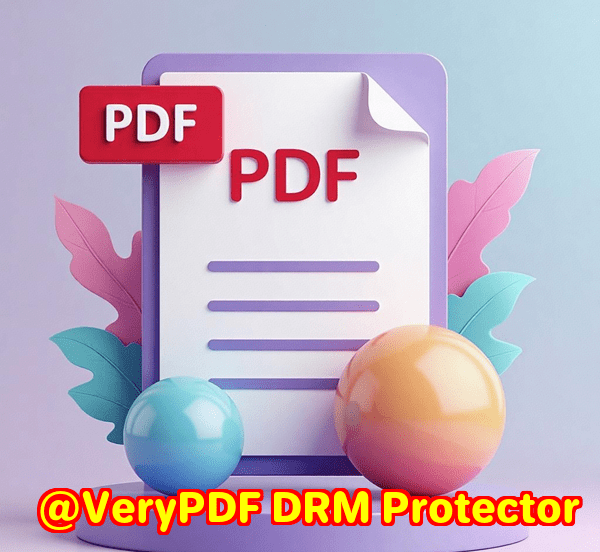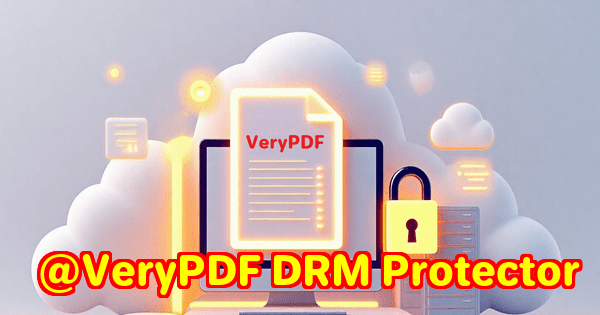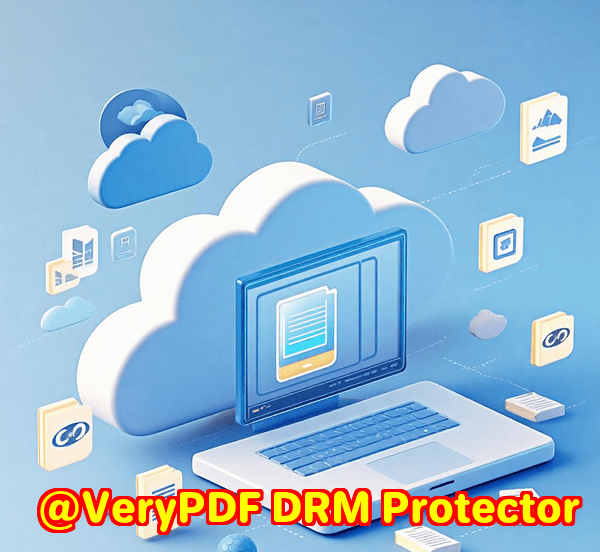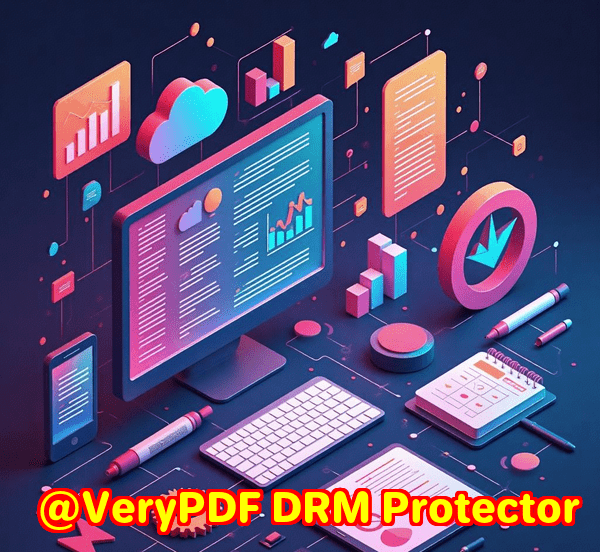Automating Large-Scale PDF Conversions to Vector Formats with VeryDOC PDF2Vector SDK
Meta Description:
Effortlessly convert large volumes of PDF files to scalable vector formats with VeryDOC PDF2Vector SDK. Improve your workflow with batch processing and seamless integrations.

Opening Paragraph (Engagement)
You know the drill: You’re working on a project, and the PDFs you’re handed are a messeither they’re locked, too complex, or just not in the right format. Every time you need to make edits or scale the graphics, you hit a dead end. I’ve been there. As a developer working on projects that require efficient document conversion, the struggle is real when you’re handed hundreds, if not thousands, of PDF files that need to be converted to vector formats like WMF, EMF, or SVG. Trying to do this manually is a nightmare. So, when I stumbled upon the VeryDOC PDF2Vector SDK, I couldn’t help but thinkthis is the game-changer I’ve been looking for.
The Challenge of Converting PDFs to Vector Formats
For years, I’ve been manually converting PDFs into various vector formats for different projects, from website graphics to CAD designs. Each conversion took too much time and was often riddled with errors or inconsistencies in scaling, especially when dealing with images or intricate layouts.
Whether you are working in architecture, business diagramming, GIS mapping, or simply trying to optimize graphics for the web, having PDF files that need conversion can create bottlenecks. Even worse, without the proper tools, these conversions can result in poor quality files that require further tweaking or complete reworking. So, you need a solution that not only makes the process automated but ensures top-quality output across the board.
How I Discovered VeryDOC PDF2Vector SDK
I was looking for a way to automate the tedious PDF-to-vector conversion process when I came across the VeryDOC PDF2Vector SDK. This tool promised batch conversion, support for a wide variety of vector formats, and a simple integration into existing systems. It felt like exactly what I needed.
From the get-go, I knew I needed a solution that could handle a large number of files without compromising on quality, and ideally, one that would save me a ton of time. And trust me, this tool did just that.
Key Features That Make PDF2Vector SDK a Game-Changer
Once I got started with the VeryDOC PDF2Vector SDK, I immediately noticed how seamlessly it handled converting PDFs into multiple vector formats. This wasn’t some run-of-the-mill PDF converterthis tool is designed to make large-scale batch processing easy. Here are a few of the standout features:
1. Supports Multiple Vector Formats
VeryDOC PDF2Vector SDK can convert PDFs into several industry-standard vector formats, including:
-
WMF (Windows Metafile)
-
EMF (Microsoft Enhanced Metafile)
-
PS (Postscript)
-
EPS (Encapsulated PostScript)
-
SVG (Scalable Vector Graphics)
-
SWF (Flash File Format)
-
XPS (XML Paper Specification)
-
PCL (Printer Control Language)
-
HPGL (HP Plotter Language)
Whether you’re working in a CAD environment or need files in SVG for the web, this tool covers almost every major vector format you can think of.
2. Batch Processing for Large Volumes of Files
Gone are the days of having to convert each PDF individually. With the batch processing capabilities, I could line up hundreds of files and convert them all at once. For developers or businesses dealing with large quantities of PDFs, this is a huge time-saver.
The batch mode supports concurrent conversions, so even the largest files can be processed in a fraction of the time. That means no more sitting around while files process one by one. Just set up the process and let the tool do the heavy lifting.
3. Easy Integration into Existing Systems
I know how important it is to have tools that integrate easily into your existing workflow. VeryDOC PDF2Vector SDK lets you run conversions from a command-line interface, or integrate it into your existing codebase using the COM object, DLL library, or command-line interface. This gives developers flexibility, whether you’re coding in C/C++, PHP, C#, .NET, or other popular languages.
Whether you’re building a custom document management system or just need to automate PDF-to-vector conversions in your daily workflow, this SDK easily integrates with your project.
4. High-Quality Output with No Loss in Scalability
When working with vector formats, one of the biggest concerns is ensuring that the output maintains its quality at any size. I was impressed by how well VeryDOC PDF2Vector SDK handles this. The output files are true vector graphics, meaning they can be scaled up or down without losing any detail or becoming pixelated.
This feature is particularly crucial when working on CAD drawings or scientific plots, where precision and clarity are non-negotiable. I could easily take a complex PDF graphic, convert it, and scale it as needed without worrying about degradation.
Real-World Applications: Where I Use PDF2Vector SDK
I didn’t just use this tool on a whim. I integrated it into several projects where converting large numbers of PDFs into vector formats was crucial. Here are some real-world use cases where VeryDOC PDF2Vector SDK has been indispensable:
-
Architectural and CAD Projects:
Converting large PDFs of architectural blueprints into EMF and SVG allowed me to import those designs directly into CAD software without any issues. The lines were sharp, and the graphics were precise, saving me hours of reformatting work.
-
Business Diagrams and Charts:
For a client working on business presentations, converting PDF charts into WMF or EPS allowed the designs to be resized without any loss in quality. This was a huge benefit when the client needed to include these diagrams in PowerPoint slides.
-
Scientific and GIS Mapping:
When working with geographic data and scientific charts, converting PDFs into XPS or SVG allowed my team to manipulate and layer the data in a GIS system. The accuracy of the conversion was flawless, making the entire process much easier.
-
Publishing and Graphic Design:
For graphic designers, the ability to convert PDFs into SVG or EPS formats was an absolute game-changer. These files could now be imported into Adobe Illustrator or other design tools for further editing or enhancement, drastically speeding up the workflow.
Core Advantages of VeryDOC PDF2Vector SDK
After using this SDK in several projects, I can confidently say that the following advantages stand out:
-
Time-Saving Automation:
The batch conversion and command-line options make it incredibly easy to automate the process. No more wasting time on repetitive tasks.
-
High-Quality Output:
No more worrying about quality loss or pixelation. The tool outputs true vector files that are ready for any publishing or design project.
-
Flexible and Customizable:
From server-side applications to individual desktop setups, you can tailor this tool to fit your specific needs.
-
Wide Format Support:
It supports a wide variety of vector formats, making it adaptable to nearly any type of project, whether you’re working in design, mapping, or printing.
-
Scalable:
Whether you’re dealing with a handful of files or thousands, this tool scales to meet your needs, saving you time and frustration.
Conclusion: A Must-Have for Large-Scale PDF Conversions
If you’re working with a high volume of PDFs that need to be converted to vector formats, the VeryDOC PDF2Vector SDK is an absolute must-have. It handles batch processing, supports a variety of vector formats, and produces high-quality results with minimal effort on your part.
I’d highly recommend this to anyone who deals with large volumes of PDFs or needs precise, scalable vector graphics for their projects. It’s saved me countless hours and ensured that my output files are always of the highest quality.
Click here to try it out for yourself: https://www.verydoc.com/pdf-to-vector.html
Custom Development Services by VeryDOC
VeryDOC offers specialized custom development services to meet your unique technical needs. Whether you require PDF processing solutions for Linux, macOS, Windows, or server environments, VeryDOC can build a tailored solution for you.
VeryDOC’s expertise spans across a variety of technologies, including Python, C#, PHP, JavaScript, and more. Their services include PDF security, digital signatures, document conversions, and content management.
If you have specific technical requirements, contact VeryDOC through their support centre to discuss your project needs and receive a customized solution.
FAQ
1. What formats does the VeryDOC PDF2Vector SDK support?
The SDK supports a variety of formats including WMF, EMF, SVG, EPS, SWF, XPS, PCL, and more.
2. Can I automate the PDF conversion process?
Yes, the SDK supports batch conversion and can be easily integrated into your system to automate the process using command-line options.
3. Does this tool require Adobe Acrobat?
No, Adobe Acrobat is not required to use the PDF2Vector SDK. It operates independently and can process encrypted PDFs.
4. Is this tool suitable for large projects?
Absolutely. With batch processing, it can handle large volumes of PDFs and convert them in




